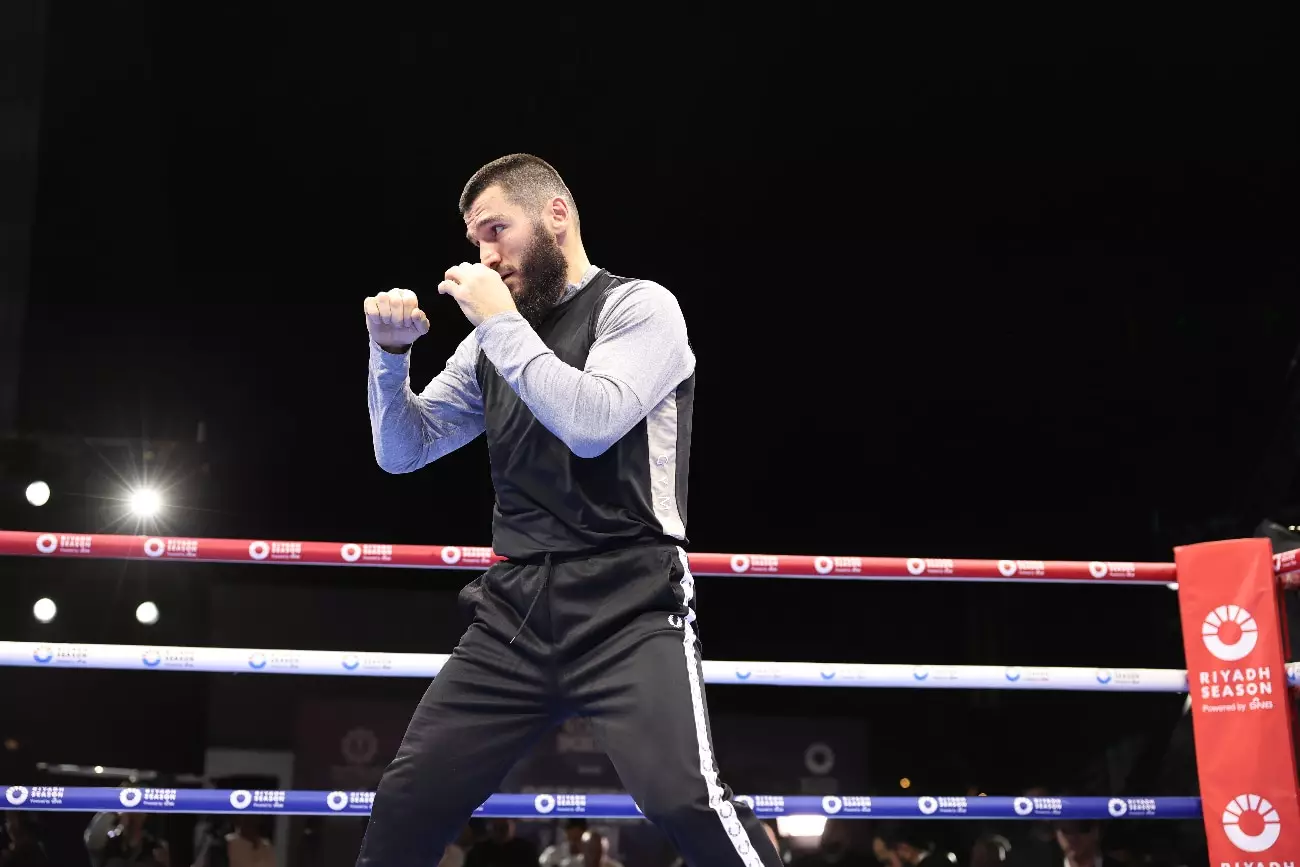The anticipation for the light heavyweight title clash between Artur Beterbiev and Dmitry Bivol has reached a fever pitch. Both fighters possess impressive records and skills, but critical analysis surrounding Beterbiev’s recent knee surgery raises concerns about his readiness and ability to perform at optimum levels. As Beterbiev prepares for the fight on October 12th, a deep dive into the implications of his injury and the contrasting fight styles of both athletes is warranted.
Artur Beterbiev stands as a formidable three-belt champion with an unblemished record of 20 wins, all by knockout. Ideally prepared for a decisive battle against Bivol, current WBA light welterweight champion, Beterbiev’s assertion that his knee is in top shape is met with skepticism. During a recent media workout, observers noted his reluctance to fully engage in the ring. This reluctance has cast shadows over the credibility of his statements and raised alarms about his mobility—a critical asset when facing the nimble Bivol.
Experts, including former champion Shawn Porter, have weighed in on this matter. Porter emphasized the significance of Beterbiev’s movement during the fight, suggesting that if he defaults to a conservative style to protect the knee, it will hinder his ability to keep up with Bivol’s speed and evasiveness. The impact of self-preservation tactics on an athlete’s performance cannot be overstated.
Dmitry Bivol, boasting an undefeated record of 23 wins and 12 knockouts, embodies a contrasting fighting style. His rapid footwork and quick punches allow him to dictate the rhythm of the match. The upcoming bout presents a tactical puzzle for Beterbiev. Historically, Beterbiev has faced fighters who prefer straightforward approaches, but Bivol represents a different challenge altogether.
Porter noted that if Bivol’s strategy involves continuous movement rather than engaging directly with Beterbiev, it will put the latter at a distinct disadvantage. With a meniscus injury still fresh in the mind of both fighter and fans, Beterbiev may struggle to employ the aggressive tactics that have characterized his previous fights. The psychological aspect of worrying about the knee could lead to hesitance, which in this sport, could mean the difference between victory and loss.
Returning from surgery after just four months presents a substantial hurdle for Beterbiev. A knee injury of this nature typically requires more time to heal and rehabilitate fully. The query remains: has he sacrificed his typical fighting style in an effort to return too quickly? As Chris Algieri pointed out, the combination of age and injury factors into a less than ideal scenario.
While athletes often strive to return from injuries with an urgency to reclaim their championship status, the physical demands of boxing highlight the risk of rushing back into competition. Beterbiev’s preparation methods in the lead-up to this fight will ultimately dictate whether he can approach the ring with a solid game plan, or if his injury will be debilitating.
The forthcoming bout between Beterbiev and Bivol isn’t merely a contest of physical prowess but also a test of mental resilience. Should Beterbiev enter the fight at anything less than 100%, he finds himself at a serious disadvantage. Meanwhile, Bivol’s tactical adaptability represents a significant threat to Beterbiev’s legacy.
Boxing fans and analysts alike will keenly watch how the story unfolds at the Kingdom Arena in Riyadh. Victory could translate into historical relevance for either champion, while failure—especially for an undefeated fighter like Beterbiev—would lead to significant ramifications for his standing in the division. As both men step into the ring, the weight of their previous accomplishments stacks high above them, setting the stage for an extraordinary confrontation.

